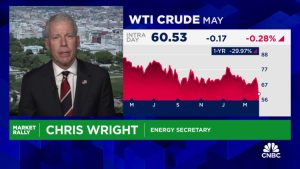Share this page:
The investing landscape in the UK is changing. While the industry has traditionally been dominated by men, the last few years have seen the number of female investors steadily rise. In 2020, the number of new female investors increased by 354%.
Yet, many women do not consider themselves ‘informed investors’, according to new research. So, what steps can they take to improve their investment insight and become more informed investors?
What percentage of women don’t see themselves as informed investors?
According to the findings of a recent survey commissioned by Capital.com, 65% of women in the UK think of themselves as novice investors with no significant investment experience.
When they were asked to describe their investment or trading experience, only 15% of female investors felt they were ‘informed investors’ compared to 28% of men.
And when they were asked why they were not interested in trading stocks and shares online, 58% of the women said it was too risky, while 52% said they did not know enough about online trading and investing. Of women polled, 22% said that they were afraid of being charged high fees for trading online.
How can women improve their investing insight?
According to Jonathan Squires, CEO of Capital.com, the survey findings show that “female investors are less likely to invest or trade online if they are not fully informed of the risk associated with it”.
He goes on to say that a key part of investing is building confidence via research, education and learning. “If you aren’t fully informed, then you shouldn’t trade,” says Squires.
Here are four steps that women who see themselves as ‘uninformed investors’ can take to improve their investing insight.
1. Read, listen to podcasts and watch videos
Reading, listening to podcasts, and watching videos on investing are all great and simple ways to broaden your knowledge on the subject. There’s an endless number of books, magazines, blogs, articles, podcasts and videos out there on a wide range of investment topics from basic concepts to advanced trading strategies.
That said, there is a lot of unverifiable information and a number of scams out there too. So, make sure that anything you are reading, listening to or watching is coming from a reliable source.
2. Keep up with financial market news
If you’re serious about becoming an informed investor, you need to remain current on financial market happenings.
This can give you an understanding of how industry trends are evolving. It can also help you spot opportunities that may present themselves in the future. The more you know about what’s happening in the market, the smarter you will be at making investment decisions.
One good way to stay up to date with financial market news is to sign up for email and news alerts from major financial publications such as the Financial Times, Bloomberg and the Wall Street Journal.
3. Ask fellow investors questions
Asking questions can help you learn a tremendous amount about investing. For example, what are other people investing in? How are their investments performing? What are their attitudes to particular investing strategies? What sectors do they think are the best to invest in right now?
You’ll find that many investors have a wealth of information to share. By consulting them, whether through online forums or investor seminars and meetups, you might be able to uncover patterns and trends that you weren’t aware of.
4. Speak to a financial adviser
Finally, a financial adviser can provide a range of services that can help you become a better investor overall.
They can help you determine how well you are doing in regards to reaching your financial goals, provide advice on specific investments, and help you craft proper investment and risk management strategies.
Financial advisors can also act as sounding boards for investment ideas you are contemplating and help you avoid potential investing errors.
Was this article helpful?
YesNo
About the author
Sean is a personal finance writer with a strong passion for helping others become more financially literate and make better financial decisions. He covers everything from credit cards to savings to investing.
Share this page:
Some offers on The Motley Fool UK site are from our partners — it’s how we make money and keep this site going. But does that impact our ratings? Nope. Our commitment is to you. If a product isn’t any good, our rating will reflect that, or we won’t list it at all. Also, while we aim to feature the best products available, we do not review every product on the market. Learn more here. The statements above are The Motley Fool’s alone and have not been provided or endorsed by bank advertisers. John Mackey, CEO of Whole Foods Market, an Amazon subsidiary, is a member of The Motley Fool’s board of directors. The Motley Fool UK has recommended Barclays, Hargreaves Lansdown, HSBC Holdings, Lloyds Banking Group, Mastercard, and Tesco.
This post was originally published on Motley Fool




